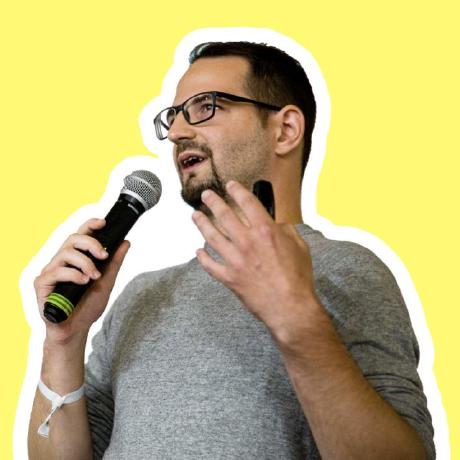This article has been published 5 years ago. If you're into internet archeology, read it — but at your own risk. Honza doesn't have to necessarily agree with the content by now.
It's 2017 and I'm at the Write the Docs conference in Prague. I see Daniele Procida talking about the Python Africa website and about PyCon Namibia. The seed has been planted to my head. Since then, I dreamed of visiting PyCon Namibia one day. In 2020, just before all the COVID-19 mayhem has started, a friend pushed me over the edge. We took our backpacks and spent February 2020 among some awesome people, within the breathtaking nature of Namibian deserts.
When I returned back, I was full of ideas on how to collaborate with the Namibian Python community. We thought about inviting some speakers from Namibia to PyCon CZ that year, and other things. I wanted to write down an article about our journey, describe the amazing things we've seen, and first of all, the kind and good-hearted people we've met. But then, the pandemic destroyed it all and took all my energy away. After more than a year, just a few days before the PyCon Namibia 2021 starts, I at least managed to finish a quick interview with Jessica Upani, the president of the PyNam (Python programming society of Namibia).
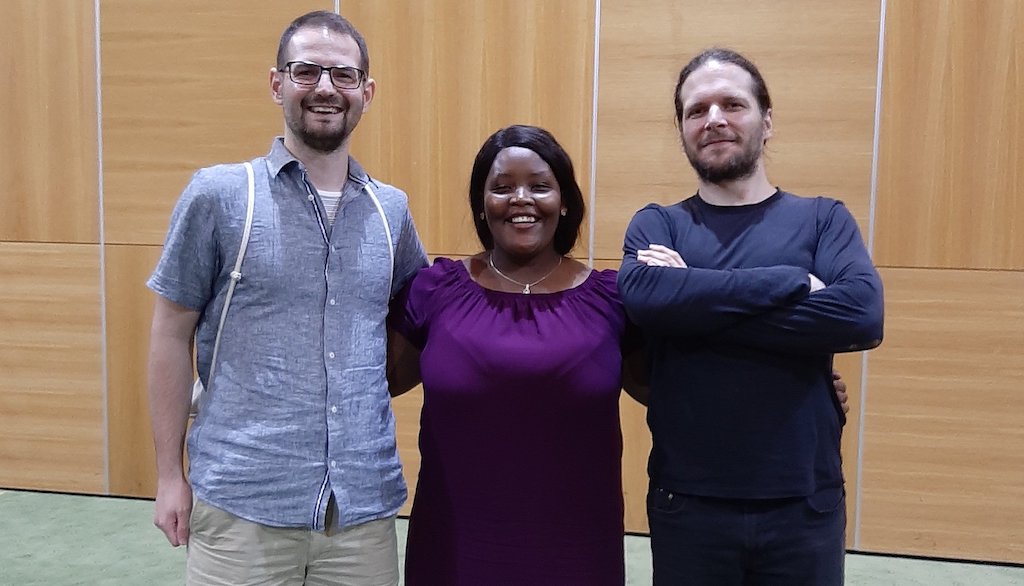
In this interview we talk about her beginnings, the programming community in Namibia, possible future for Namibian scholars, and about the hardships of organizing community events in a Southern-African country, especially in the time of COVID-19.
Dear reader, before you immerse into the interview, let me just quickly remind you that PyCon NA 2021 takes place online, starting tomorrow — that is 18th-19th June. The standard ticket is 640 CZK/29 USD/400 NAD, and it has a one-track two-day programme with talks about a wide range of Python topics and speakers from all around the world. You can also follow the conference at @PyConNA.
Jessica, I know you’re one of the driving forces behind the growth and success of the Python community in Namibia. I know you especially as a co-organizer of PyCon NA 2020, together with Ngazetungue Muheue, Daniele Procida, and others, but I came across many clues that in fact you’re doing much more than “just” the conference. Could you list all the activities you’re participating in?
Yes, we do more than just the conference. The conference is just one of the activities that we do to help grow the community. In fact, it is our biggest event.
- We do school outreach programs to help get more scholars to join the community through coding clubs and to raise awareness of Computer Science related courses to high school learners.
- We run workshops and trainings that help us build skills within the community.
- We also run meetups to help keep the community together and host talks on different Python/Django related topics.
- Sometimes we also collaborate with other community leaders on their events or we attend them and are given a few minutes to introduce the Python community.
How did you personally get to programming and to participation in the programming community? Would you describe your history a bit?
My journey started in 2016 when I attended the first ever Python conference in Namibia organized by Daniele Procida, Vincent Knight and others, with the assistance of the University of Namibia, Cardiff University and the Phoenix Project.
I attended the conference, because it was free, and hence it meant free food, and the conference was just a few days before my classes started, so I had time. I was certainly not there for Python, because I had heard the worst about Python prior to the conference.
I loved the community and the friends I made during the conference, and I was sold by the end of the 4 days. I wanted to give the experience I just had with more people. During the course of the conference, there was a talk about starting a society that would carry out the work of building the community after the conference. I joined and never looked back.
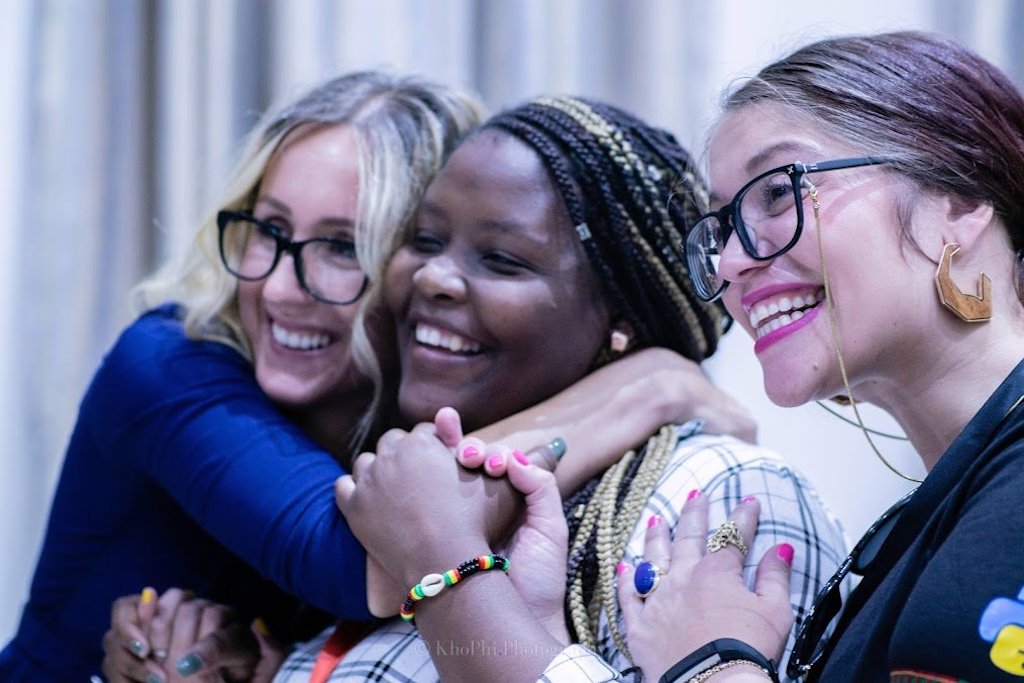
During PyCon NA 2020, I remember you saying that you plan to start a PyLadies group, and I remember there was already a group for students, PyNam Scholars. But now when I check your community website, there are now seven different user groups! How did this happen? Does it mean the community is growing and more and more people are participating?
Not necessarily. It means that we have evolved and thought of different ways that we could cater for the different interest areas that our community may have. We started the subgroups to get more people from the community to help us manage the subgroups and for there to be more focused workshops and trainings. PyNam Scholars and PyLadies have both had events but the rest still need collaborative effort to get more done. We are very hopeful that each one of these subgroups will take their own paths and will impact the community at their different levels.
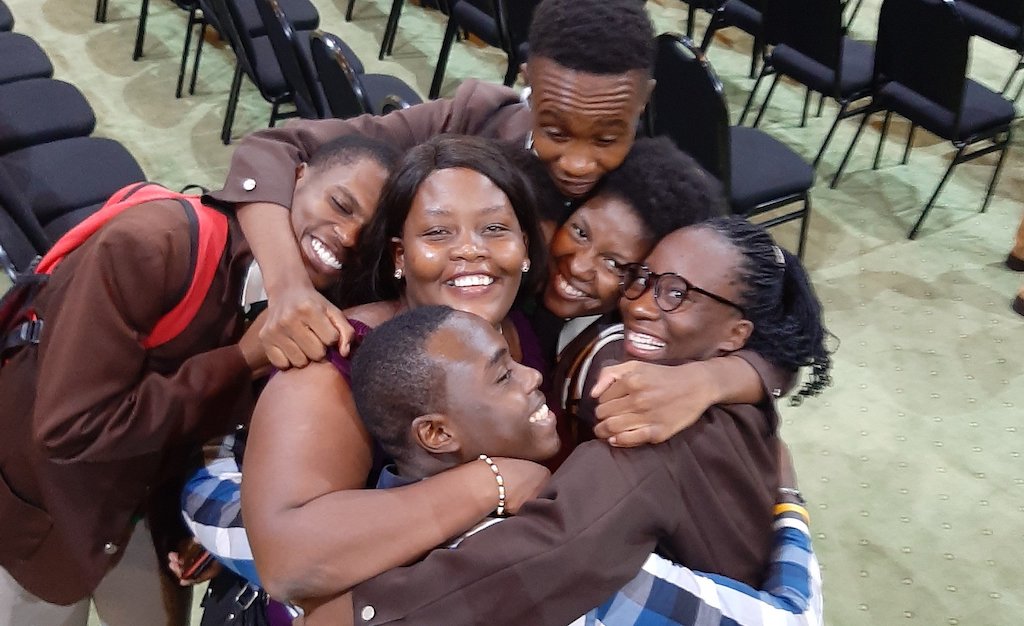
If I’m allowed to dream, Namibians could learn programming and either start cool local technological businesses, or get remote jobs as professionals to hire. I don’t believe any of the thousands of Silicon Valley projects will ever solve a single African problem, but it might take just a single mobile app made by Namibians. Also, unlike us, you could actually skip building dirty factories all over your country and get right to the Finnish way of doing things: not many people, not many resources, but very smart. Is this a completely crazy idea? What do you think are the possibilities of programming in Namibia? I’m asking about an idealistic, visionary view, which you wish could happen.
Ha ha…! That is a thought provoking question. That is exactly what we hope for with all the efforts that we put into skill development. Namibians are so smart and capable. They are capable of just as much as any other developer is capable of from any part of the world, with the right amount of exposure and resources. There have been such amazingly creative projects that I have witnessed since I joined the community. There is still a lot more that needs to be done but I am so hopeful for the Namibian community. I foresee a lot more Open Source startups and much stronger developers as time progresses.
Now if we get back our feet to the sandy Namibian ground, what do you think are the biggest obstacles which prevent you from achieving your goals? It can be personal or systematic, whatever is holding you back the most.
There are core issues such as a lack of exposure and a lack of resources within our community. But there are a lot of key players in this journey that still need to work together and recognise their role in the success of the future generation.
We have parents at home who may not see the importance of their child having a computer (or exposure to one) or for the child to attend developer events for example. Some parents would still stop a girl child from owning a computer or attending a developer event but would provide those exact opportunities to their boy child.
There is a great role that the government has to play in terms of policy making, increasing the standard of the adopted curriculum in schools, functional resources at schools, skill development of teachers, and so much more. Universities have their role to play and organizations within the country, either private or otherwise, also need to be willing to invest in tech. The list is endless Honza, I could talk all day about this but we are taking baby steps to help steer our community in the right direction.
I’m looking forward to PyCon NA 2021. Usually it used to be in February, but this year I noticed that it is in June. I suppose that’s because of the pandemic. How would you describe the impact of the pandemic on your activities?
We are scared of hosting the conference online. Connection issues, a lack of resources of our community as well as the affordability of the data to attend the conference are the main concerns. This has been a big issue in our online workshops and hence I'm afraid that it will shy many people from benefiting from the conference.
Our community is also very small and hence we relied on events such as the conference to gather as many of our community members as possible and motivate them to push themselves even more. The pandemic has changed it all and we are comfortable with letting it be and keeping everyone safe.
The conference was pushed because we wanted to have an in-person conference so much. There was such a long drag because most of us were so against an online conference. We didn't even know if the conference would take place at all this year, I'm surprised that the conference is now just a few days away. It is a miracle!
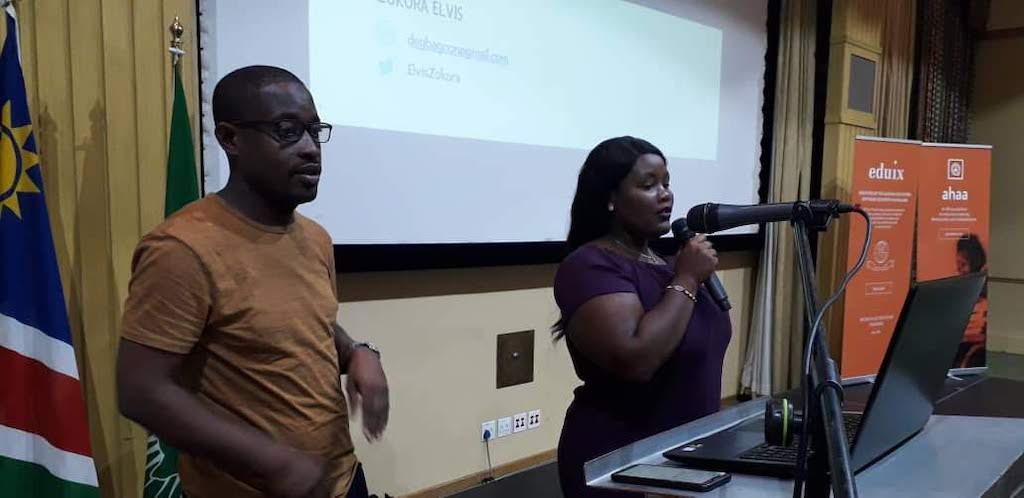
I think the conference will run both in person and online, for the first time in history. Could you describe the pros and cons of this decision? Are there any difficulties to overcome?
The conference is fully online. In the past few weeks, Namibia has experienced a spike in COVID-19 cases from about 200 cases a day to up to 1400 cases a day. The country is now in lockdown in some areas and hence we are not able to meet in person at all. Right now we have just accepted the situation for what it is and go ahead with the conference either way despite the challenges that may be experienced by especially the attendees from Namibia.
I'm sorry to hear that :( Crossing fingers it all gets better. When the pandemic hit the Czech Republic, many people here were surprised by the fact that not every child has a computer, not every child has access to the internet. There were fund-raising campaigns for getting computers to children from low-income families, so they could connect to school online and continue their education. At that time I recalled how your Patreon page patreon.com/pythonnamibia started. Could you tell us more about the fund-raising, where does the money go and what it enables?
The page is our attempt at creating computer labs in schools. It was created in 2018, during which it didn't make any income. By 2019 we slowly progressed to 30 USD a month. The most growth was only made in 2020-2021. In total we just about reached 2000 USD. This is an accumulation of since we started in 2018 and hence we have not yet withdrawn the amount. In Namibia, a new computer costs 500 USD minimum.
However, we are working on getting more people or organizations to join us, and add to this amount, so that we are finally able to buy computers for one school at a time. This may not have a very large impact but we believe that it is better than doing nothing.
We are so grateful to everyone who has supported our Patreon page so far without having any evidence that we will indeed do as we say, but with mere faith that this is a good course, and it will benefit African children who will otherwise not be able to use a computer. We are very grateful and proud of our supporters, who have joined in doing something about this big fight that Africans keep fighting.
We hope that everyone reading this will find it in their heart to join us and support the course. Only together can we create a bigger impact.
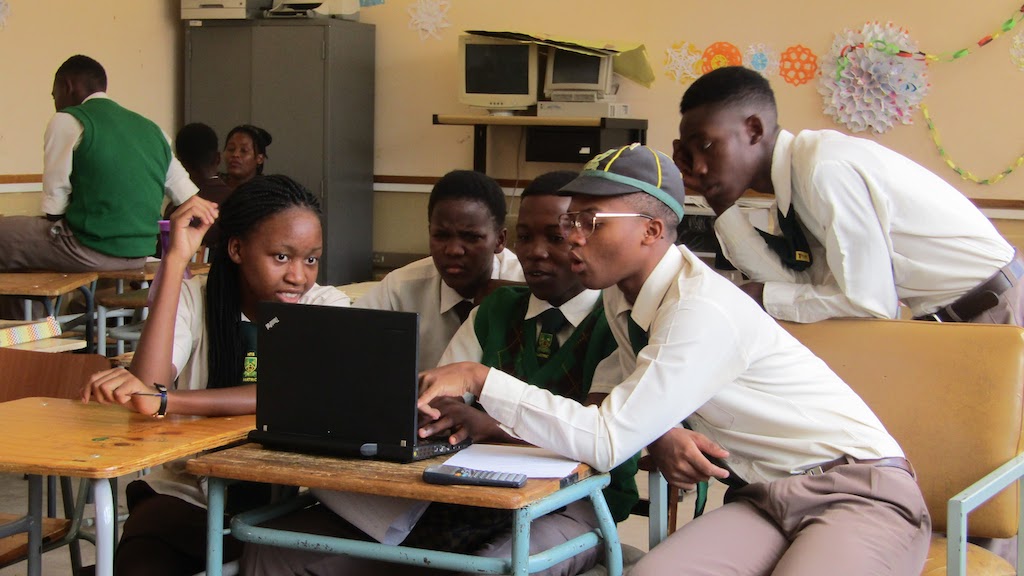
I suppose PyCon NA is the project which now requires the most of your attention and energy, but when it’s over, what is the number one thing you want to focus on?
After PyCon NA 2021, we have a couple of workshops and meetups planned. But more importantly, we have a school outreach that will happen soon after the conference, in which we hope to get more scholars to join in our Python training that will take place over 12 Saturdays. We will continue working for the community to help build coding skills.
If anyone would like to reach out to us as a speaker, workshop organizer or any other collaboration, we are very open to that. Please, just write to PyNam or directly to me.
How does your community work? Could you describe how it’s structured, how does it organize itself? Is there some hierarchy, semi-official roles, org meetings, communication channels?
Wow. That has been a complicated process! I lead the team, but I am part of an executive team of more than 10 people who oversee the operations of the different subgroups. Every operational subgroup has a lead. Even though the number sounds big enough, that has not reflected on the amount of work that is done in the society. So we are still working on that.
It is my dream to have less to do one day :) PyCon Namibia however is run solely by volunteers both from the Namibian community as well as the international community, and a few PyNam executives, who are willing to volunteer. So everyone and anyone is welcome to join the team.
We have a WhatsApp group for coordination, and we use Microsoft Teams for the online events.
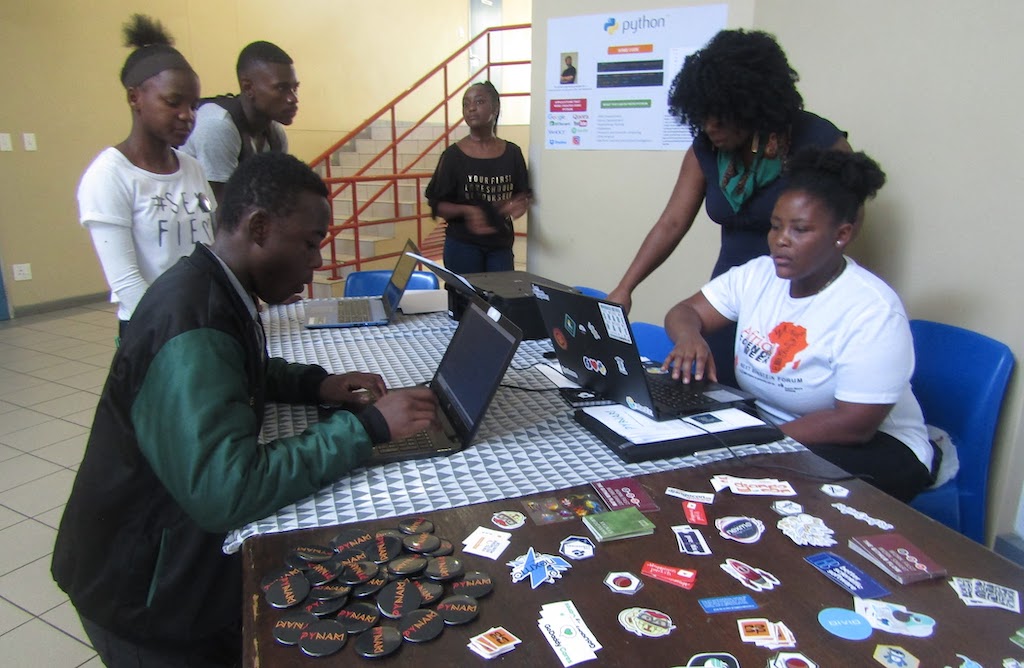
What advice would you give to a person in a similar position to yours, i.e. local community leader, who is working hard to make their user group grow? Perhaps someone from Maputo, Hradec Králové or Harare is reading this. Is there something which worked for you well and you think it might work well elsewhere, too?
Wow, awesome question which I love to talk about all the time. I would say just get started, if you haven't done so already.
This question has so many layers, Honza. In my journey there have been so many things that have been involved, and that I have learned from. If I can pick a direction in which to answer, this is in terms of the characters of the person/s starting this journey, because that's the most important one in my opinion.
You have to be pure in terms of your why. Your why should be selfless, should never give up and should be willing to sacrifice one's personal gains for the good of the community. Know what you want to accomplish overall, and then take one step at a time that will lead you in that direction. Do not be overly concerned about the successes of other communities, rather aim to understand your type of community and strive to navigate through that to reach your overall mission.
You do not need to have it all together in terms of coding skills for you to start, you just need the will to work for your community without gain.
And maybe, if you don't do it, no one else will. Just get started, the rest will work itself out, one step at a time.
I can't imagine a better closing. I know you're quite busy these days and I didn't really get in touch in a good time, so thank you very much Jessica, for in the end, you were able to carve out a bit of time to answer these questions. Fingers crossed with organizing the conference, I'm sure it's gonna be awesome!
It's super late, but you poked my mind in such a thought provoking way! It was nice to reflect on the past and the future. Thanks, Honza!
